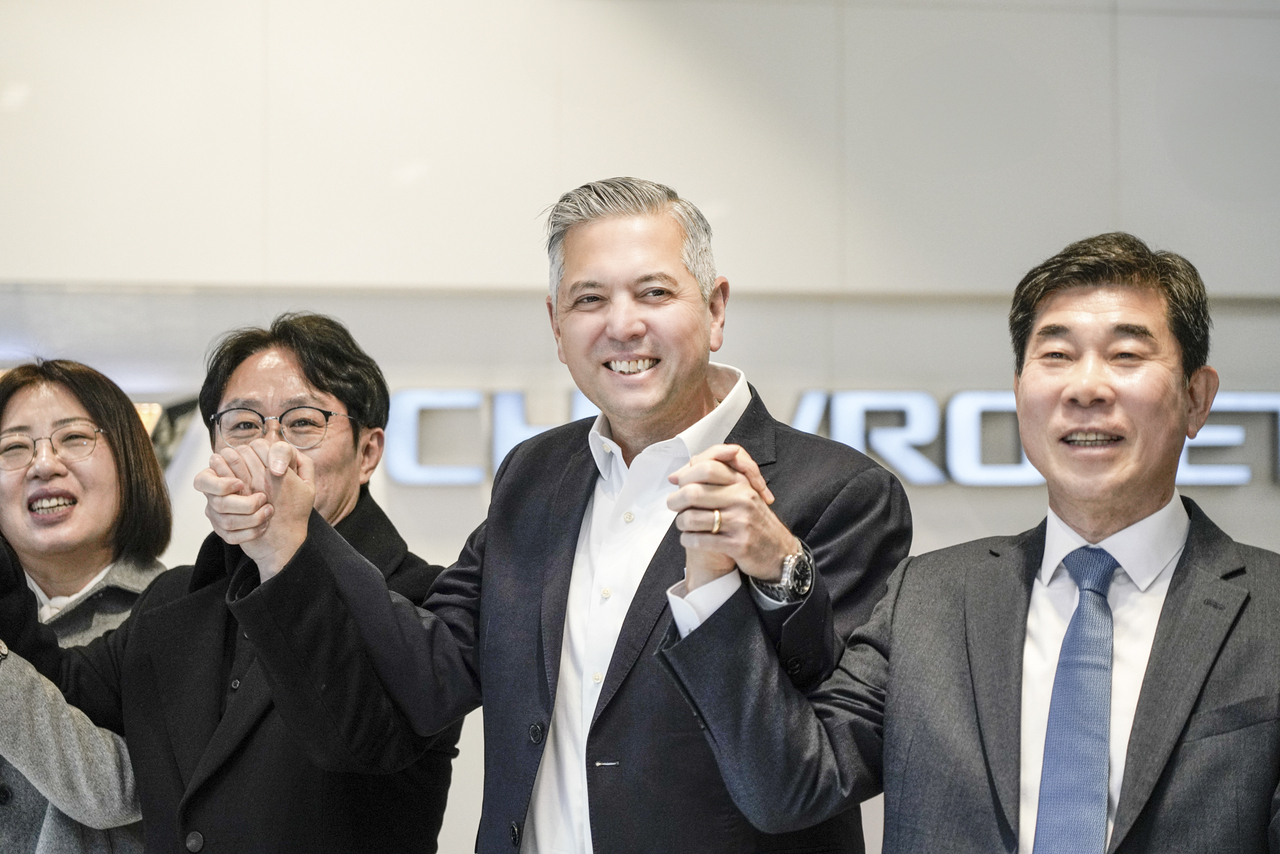
Amid concerns over a potential withdrawal due to tariff threats from US President Donald Trump's administration, Hector Villarreal, General Motors Korea president and CEO, reaffirmed his commitment to the company’s domestic operations.
According to the company, Villarreal visited the Chevrolet Shinchon dealership on Friday, where he highlighted a focus on "achieving sales growth this year by offering world-class premium vehicles from GM’s global brands, including Chevrolet, Cadillac and GMC, to domestic customers, while implementing strategies to deliver exceptional service.”
Villarreal’s visit was part of GM Korea’s renewed effort, dubbed the Monthly Connect program, which aims to engage with dealerships and service center employees, gather customer feedback and explore innovative sales strategies.
“I sincerely thank the car managers who diligently work on the front lines of sales, directly engaging with our customers to provide the best vehicle purchasing and ownership experience,” Villarreal added.
As part of its efforts to enhance customer satisfaction, GM Korea is also expanding its service infrastructure, including the construction of state-of-the-art service centers in eastern Seoul and Wonju, Gangwon Province. In July last year, the company opened a one-stop premium service hub in western Seoul.
Villarreal’s pledge comes amid growing concerns over GM Korea’s export-dependent operations, which could be severely impacted by Trump’s proposed 25 percent tariffs on all auto imports to the US.
In 2024, GM Korea sold 499,559 vehicles, its highest figure in seven years, largely driven by strong overseas sales of 474,735 units. Notably, approximately 90 percent of global sales were directed to the US, with SUV models like the Chevrolet Trax and Trailblazer leading the charge.
Addressing these geopolitical challenges, GM Chief Financial Officer Paul Jacobson stated during an investor conference on Jan. 29 that if the US tariffs become permanent, the company may need to reassess the potential relocation of factories and production allocations.
“With only three years remaining on the ‘10-year rule’ agreement with the Korean government, GM might consider withdrawing from Korea this time,” said Kim Pil-su, a car engineering professor at Daelim University. “Having already separated the R&D division from the Korean unit in 2018 and integrated it into GM’s US headquarters, the only remaining step for the auto giant would be to shut down its production facilities.”
In 2018, GM Korea secured 810 billion won ($555 million) in funding from the Korea Development Bank to improve its financial structure under the condition that GM would not withdraw from Korea for at least 10 years.
hyejin2@heraldcorp.com




